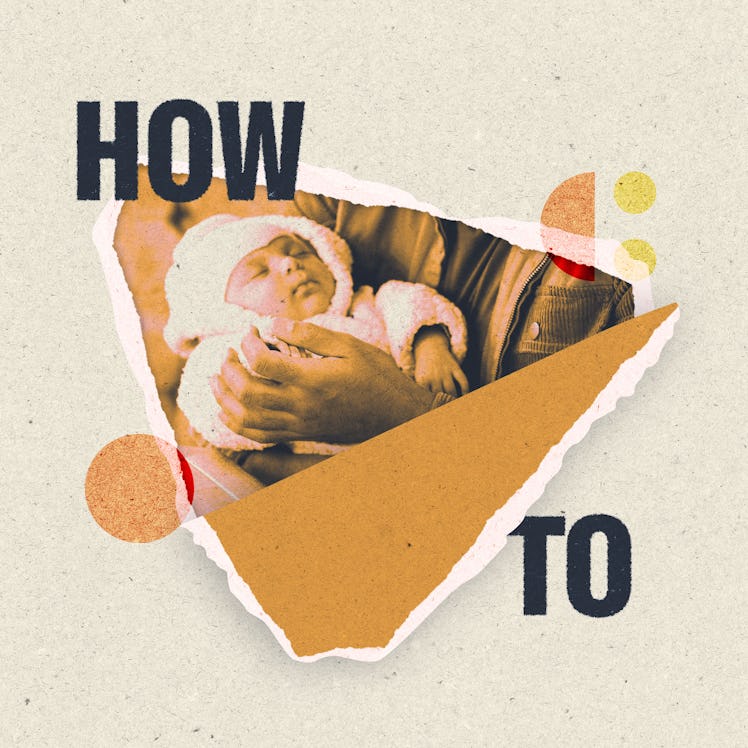How To Dress A Baby For Cold Weather
Keeping a baby comfortable in winter temps requires extra time, extra layers, extra clothes, and extra patience.

As the weather cools, baby winter clothes become a necessity. Infants and toddlers are less able to regulate their body temperatures, so they’re more vulnerable to the cold. But there’s much more to protectively dressing a baby in winter than simply throwing a baby jacket over a warm onesie and calling it a day. In fact, dressing a baby for winter temperatures requires extra planning and extra time, as well as special attention to cold hands, faces, and feet.
The best winter baby clothing strategy is one that’s practiced and expert-informed so that parents feel comfortable taking little ones outside, whether that means a walk from the car to a store, some chilly sledding, or a long wait for public transportation. After all, as the Scandinavians say: There’s no such thing as bad weather, just inappropriate clothing.
How to Dress a Baby in Winter
The key to dressing a baby appropriately for cold weather is layering. Layers provide excellent insulation and can be added to or removed in order to find the right comfort level. Babies should have at least as many layers as their parents. A thin onesie, then a few long-sleeved shirts and pants, then a sweater or a sweatshirt, and a coat or snowsuit is a good start, according to pediatrician Alison Mitzner, M.D. Don’t forget the feet — if footie pajamas are called for, socks under footie PJs are better.
“Always have gloves or mittens, hat, and boots,” advises Mitzner. “Every child — and adult — needs a hat in the winter weather. You lose a good percentage of your body heat from the head.” Babies, with their ginormous noggins, are no exception.
When it’s time to travel, building in a little extra time into the schedule can keep the process from being overwhelming. Taking the time to heat up the car, if possible, helps keep kids warm. So does stashing the car seat carrier inside when not in use.
Blankets are absolutely indispensable in the car. “Keep the bulky snowsuits or big coats off and put them on after you reach your destination,” says Mitzner. “Keep a blanket with you to put over the buckle and harness if you need added layers — not underneath.” The car seat harness straps need to fit snugly; a bulky garment such as a coat or a snowsuit can reduce the efficacy of the car seat. And if there’s an accident on icy roads, that can mean serious injury — or worse. Hat, gloves, and boots can stay on.
Finding Appropriate Baby Winter Clothes for Health and Safety
If parents see their baby shivering, it means it’s time to go inside. A shivering baby is a cold baby, and shivering can be a sign of developing hypothermia, a dangerous condition in which the core body temperature drops below 95 degrees. Babies need to use their caloric intake for growing, not trying to raise their core temperature, and they can’t count on exertion to keep them warm.
Attentive parenting makes frostbite an unlikely threat for an infant, but older, more mobile kids may be at risk. “Frostbite can occur if the skin is exposed to really cold temperatures — most often with fingers, toes, ears, and nose,” warns Mitzner. “If you see the skin becoming very pale and cold, immediately bring your child inside. Warm washcloths work well for the ears and nose — do not rub affected areas.”
Generally, the key to wintertime comfort is to remember that it’s going to take extra time, so take it. Add a few minutes to the departure time to let the car warm up sufficiently — not just the engine, but the heater. Add another five minutes or so to deal with cold hands adjusting car seat straps, arranging blankets, and making goofy faces at a 7-month-old who’s wondering why it’s so damn cold.
And make sure to bring additional clothes, hats, mittens, and socks. Since wet cotton doesn’t insulate worth a damn, one poorly fastened diaper or wet blowout can quickly turn all those layers into liabilities.
This article was originally published on